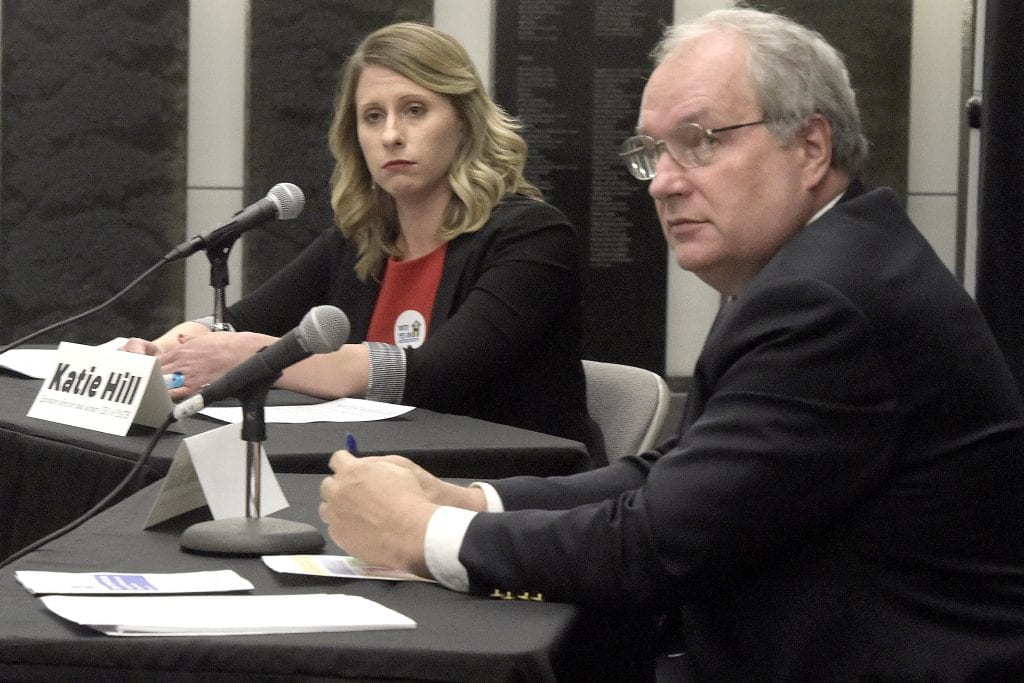About 60 people showed up at the College of the Canyons Thursday night to hear the pros and cons of a multi-million dollar plan to end homelessness in Los Angeles County and end homelessness in the Santa Clarita Valley.
The plan is called Measure H and stands on voters’ March 7 ballot aimed at funding a countywide homelessness initiative for 10 years.
The Signal and College of the Canyons hosted a debate Thursday with the hope of giving the public a chance to hear why the ballot measure is a good way of addressing homelessness or a poor way of preventing and combating it.
Money for the program would be raised with a 1/4-cent sales tax levied over 10 years.


Katie Hill, deputy CEO of PATH, the largest organization solely focused on addressing homelessness in California, speaking in favor of the Measure H, described homelessness as a huge problem that needs a huge investment in order to fix.
“No one likes taxes but we’re already spending tax dollars on this precise problem,” she said. “So, if we’re going to be spending that money anyway we need to spend it on evidence-based practices.
“It’s going to cost $350 million a year and its going to be hard work,” she said. “And, we’re going to be fighting an uphill battle. So, yes, it’s too big a problem and the problem is complex but if we don’t do something the problem will get worse.”


G. Rick Marshall, chief financial officer for California Taxpayers Action Network, speaking against the measure, said he’s not opposed to spending money to address homelessness but he wants to know where the money is going and needs benchmarks by which he can measure its success.
“The problem with Measure H is that it asks for the money first and promises to figure the rest out later,” he said.
“When you put more money into the government you grow government but you don’t necessarily see benefits,” he said. “I want to see actual benchmarks in this ordinance and I don’t see them.
Hill argued that the benchmarks were spelled out in the strategies presented by 47 agencies currently working to combat homelessness but that, ultimately, the primary benchmark is getting 45,000 homeless people into permanent homes.
“To get 45,000 people housed within five years, to me that’s a pretty clear benchmark,” she said.
Signal columnist Jim de Bree, a retired CPA, estimated the hike in sales tax would cost the average Santa Clarita Valley household $75 to $80 a year assuming an income of about $85,000, a third of it spent on taxable purchases.
He told the group before Marshall arrived: “It’s like going to the bank and asking for money.” he said. “And, when you’re asked ‘What are you going to do with it?’ you say ‘Once we get the money, we’ll know.’







